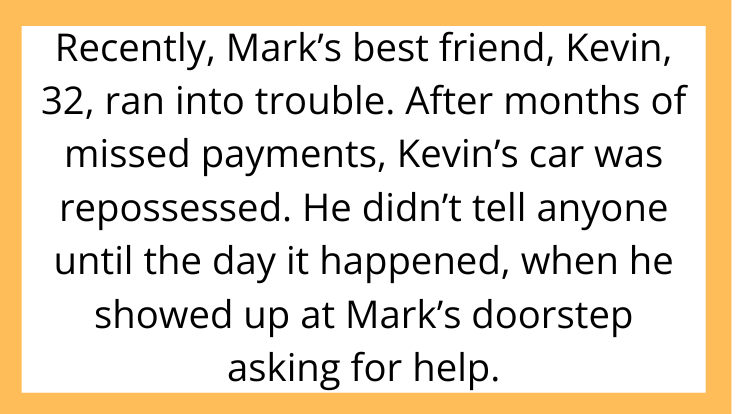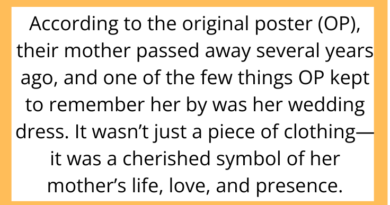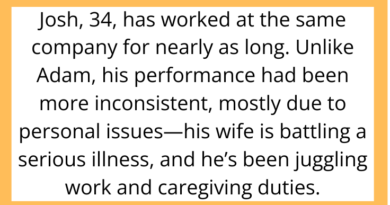AITAH for Refusing to Lend My Car to My Best Friend After His Got Repossessed?
When friendships meet financial hardship, tensions can rise faster than you’d expect. In today’s AITAH story, a seemingly simple “no” turned into an all-out fallout between lifelong friends—and the internet can’t decide who’s right.
Let’s dig into the details.
The Situation: One Car, Two Very Different Expectations
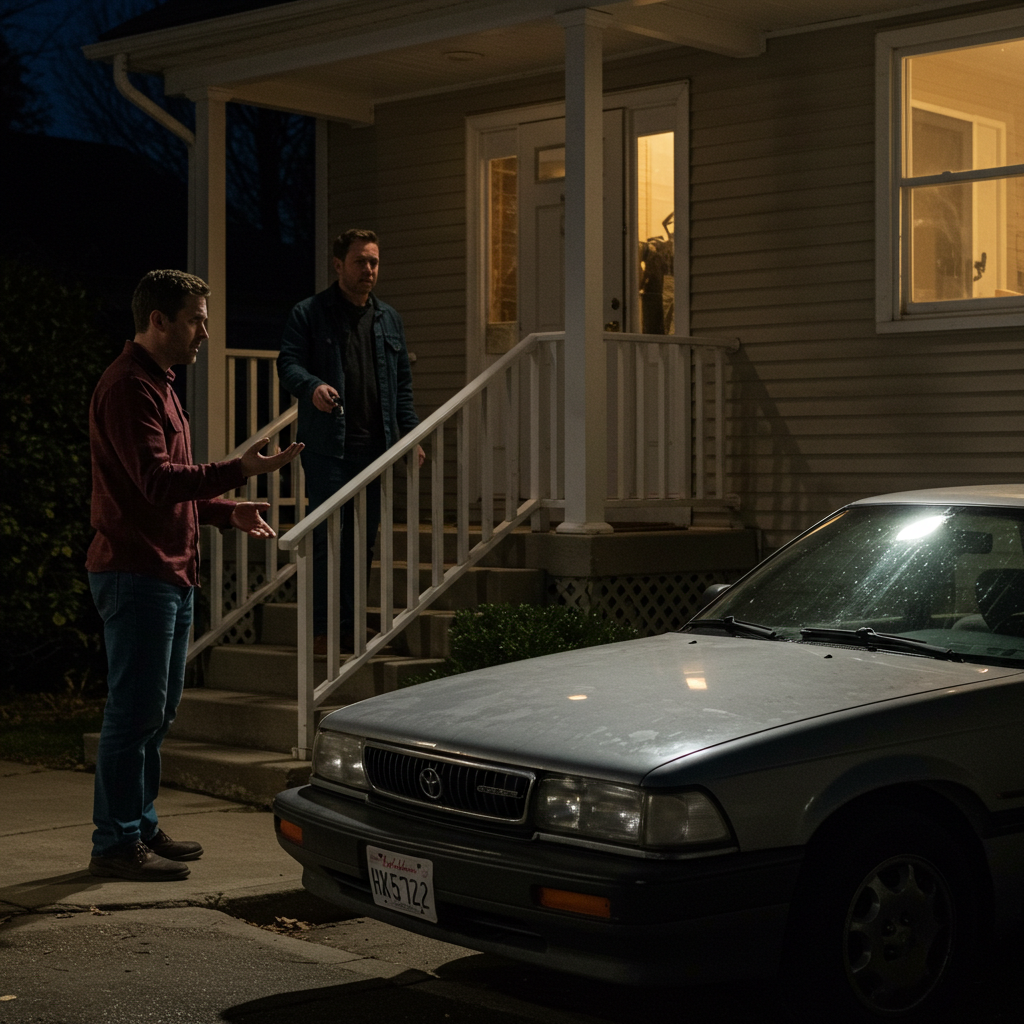
The original poster—let’s call him Mark, 31—shared on r/AITAH that he’s had his car for almost a decade. It’s nothing flashy, but it’s reliable and fully paid off. Mark needs it for his daily commute to work and to run errands for his elderly mother, who doesn’t drive.
Recently, Mark’s best friend, Kevin, 32, ran into trouble. After months of missed payments, Kevin’s car was repossessed. He didn’t tell anyone until the day it happened, when he showed up at Mark’s doorstep asking for help.
Kevin’s request? To borrow Mark’s car indefinitely—at least until he saved enough to buy another one.
Mark said no.
The Conflict: When “No” Feels Like Betrayal

Mark tried to explain his decision calmly. He relies on the car every day, and he didn’t feel comfortable lending it long-term, especially when Kevin didn’t have a clear timeline for when he’d be back on his feet.
He offered alternatives: driving Kevin to job interviews when possible, helping him look for affordable used cars, and even giving him some cash toward public transportation.
Kevin was hurt—and angry.
“You’re my best friend,” he argued. “You know I’m trying to get my life together. But you can’t even help me with something you take for granted.”
He accused Mark of being selfish and implied that if the situation were reversed, he would “gladly” hand over his own car.
Since that day, Kevin has barely spoken to Mark, and mutual friends have started weighing in, some saying Mark should have done more to help.
Reddit’s Verdict: Is Mark the Villain?
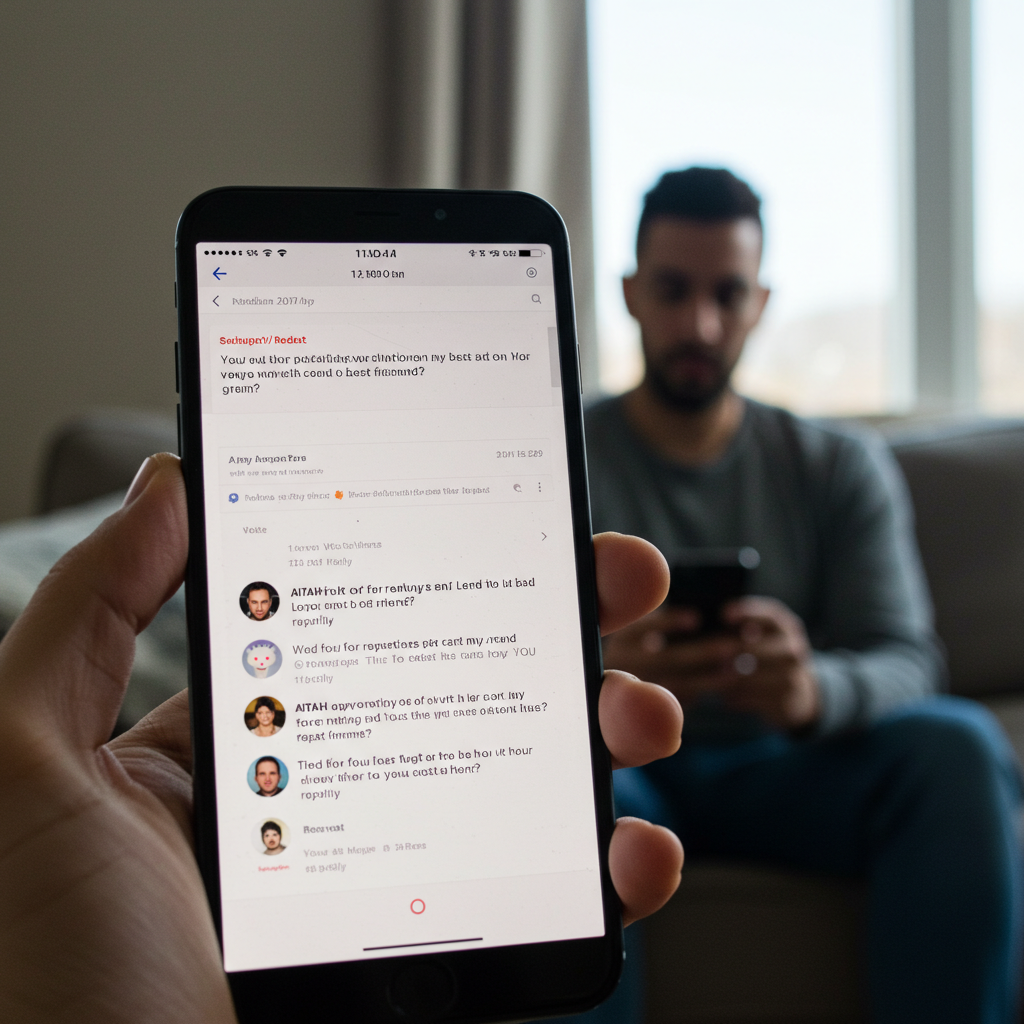
The AITAH community had strong opinions—and most sided with Mark.
The Arguments for Mark
-
He Needs the Car: This isn’t a spare vehicle sitting unused. It’s Mark’s only means of getting to work and caring for his mom.
-
No Clear Timeline: Lending a car “until further notice” is risky, especially when Kevin doesn’t have a plan to repay debts or replace the vehicle.
-
Not Obligated: Friendship means supporting each other, but it doesn’t mean sacrificing your own stability.
One commenter summed it up perfectly:
“A friend in need deserves help, but you don’t owe anyone your livelihood.”
The Arguments for Kevin
While the majority empathized with Mark, a few understood Kevin’s perspective.
-
Desperation Makes People React Poorly: Kevin was embarrassed and panicked, so he lashed out.
-
A History of Friendship: If Mark and Kevin have always had each other’s backs, Kevin may have felt entitled to expect a big gesture of help.
-
Emotional vs. Practical Support: Kevin may not have wanted money or rides—he needed independence.
Still, even those sympathetic to Kevin largely agreed that expecting someone to hand over their only car indefinitely is unrealistic.
Boundaries Are Not Betrayal
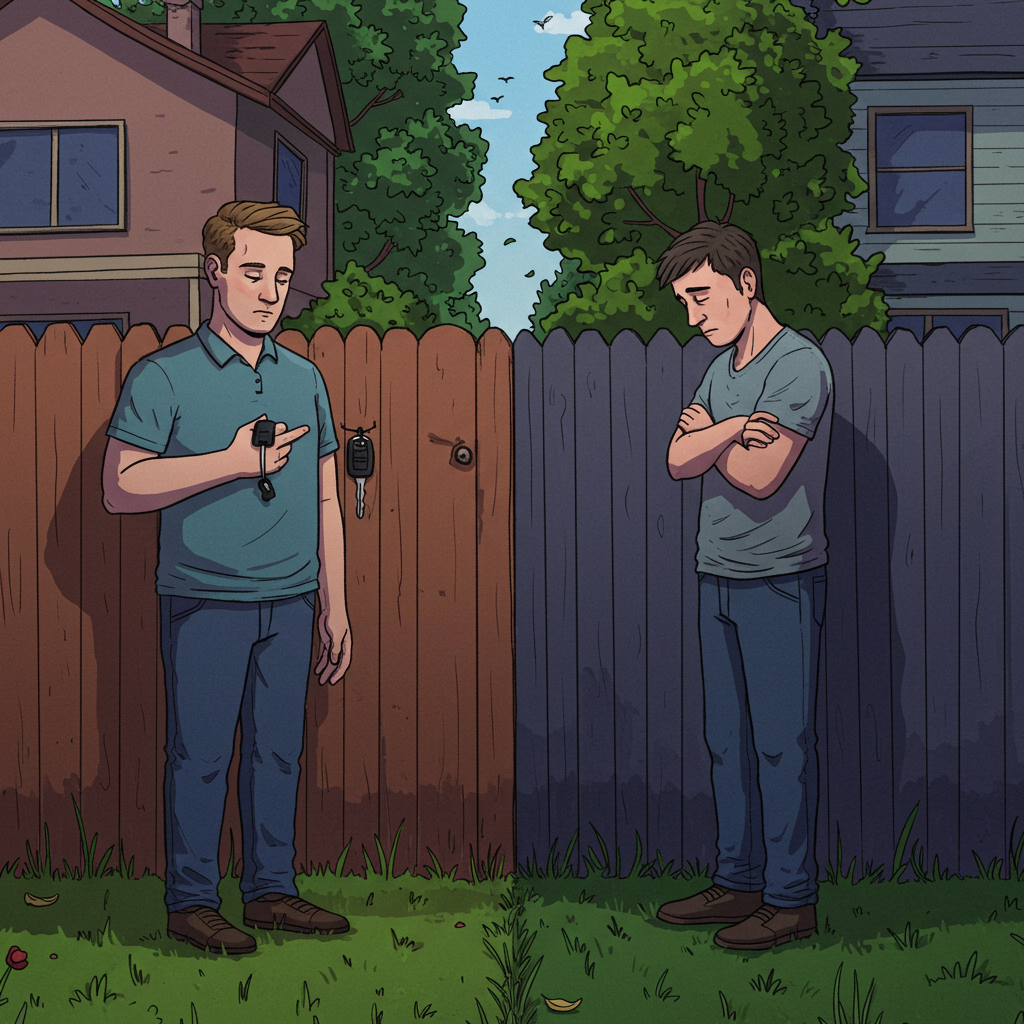
This scenario is a perfect example of how boundaries can feel like betrayal to someone in crisis. But here’s the truth:
Supporting a friend doesn’t have to mean compromising your own security.
Mark didn’t abandon Kevin. He offered rides, financial help, and emotional support. What he didn’t offer was a sacrifice he couldn’t reasonably make—and that’s okay.
When Friendship and Responsibility Collide
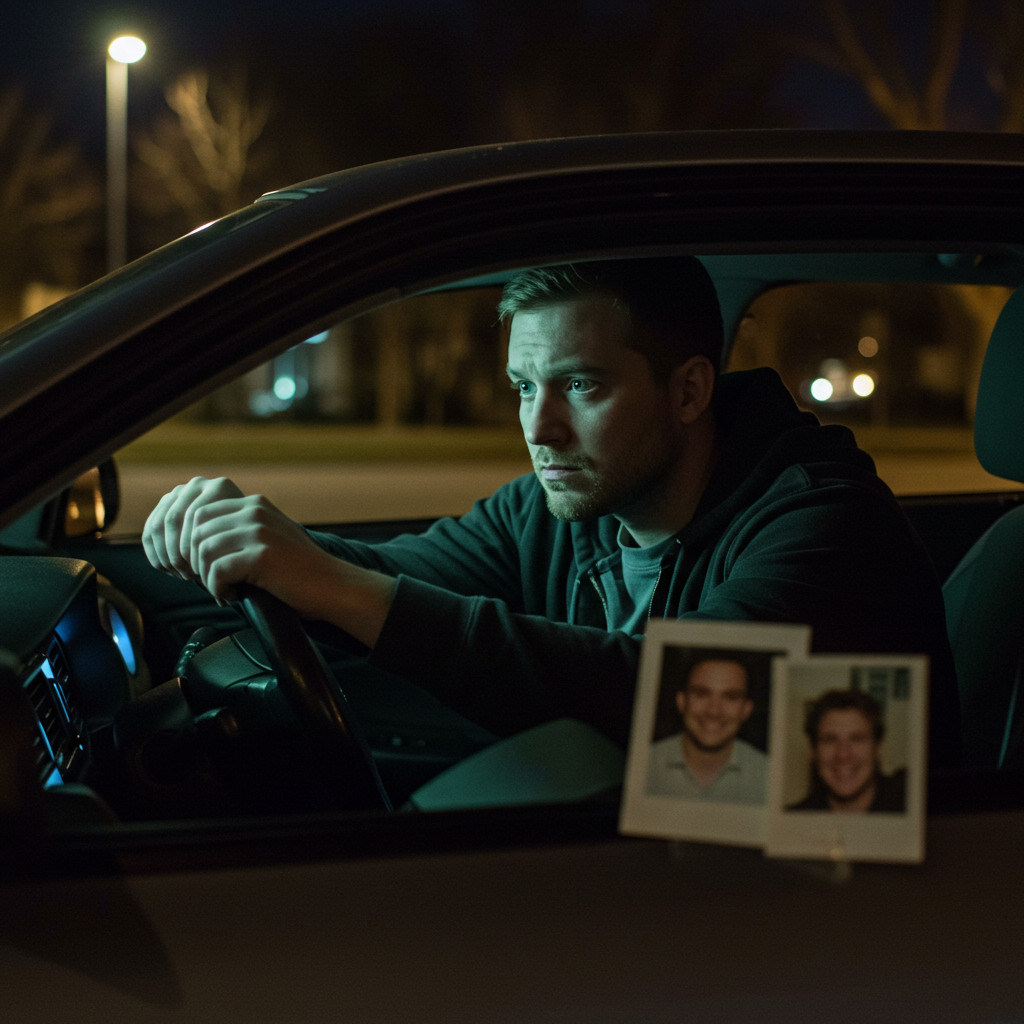
Could Mark Have Done Anything Differently?
Some commenters suggested that Mark could have offered short-term lending (like weekends only) or helped Kevin rent a car for a few days. Others pointed out that it’s not Mark’s responsibility to solve Kevin’s long-term financial problems.
The bottom line: If lending something puts you at risk of losing your job or independence, it’s fair to say no.
Takeaway: No Is a Complete Sentence

You can care deeply about someone and still decline to take on their burdens.
You can be a good friend without being a savior.
And you can offer help in ways that don’t jeopardize your own life.
Kevin’s reaction may be driven by shame and fear. Over time, he may come to see that Mark’s boundary wasn’t cruelty—it was self-preservation.
